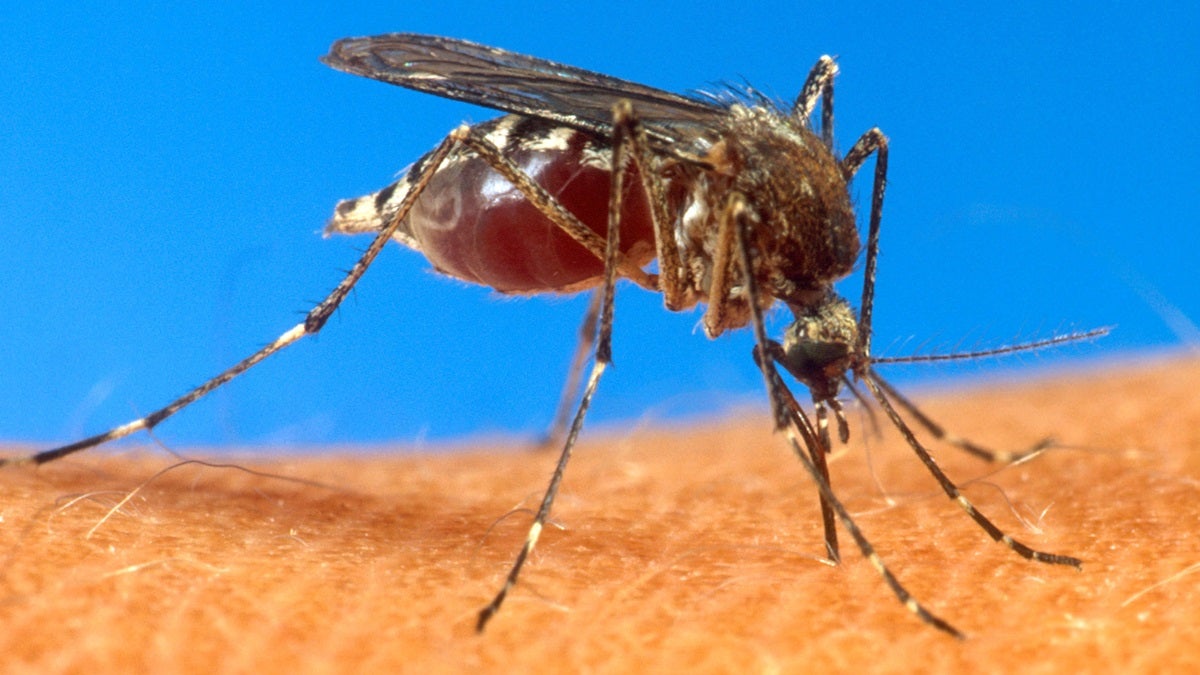Delaware health leaders warn of mosquito-borne disease

(AP Photo/USDA, File)
An exotic mosquito-borne illness could soon cross Delaware’s borders.
First seen in the Caribbean, Chikungunya disease is a potentially debilitating condition that causes fever, joint pains and could lead to joint swelling or rash. Cases have been uncovered in Maryland, New Jersey and Pennsylvania, including two cases in Philadelphia.
To avoid exposure to the disease, the Delaware Division of Public Health is urging residents to “fight the bite” and reduce their risk by avoiding mosquito bites.
“Because there is no anti-viral medication to treat Chikungunya or [West Nile Virus], it is crucial that people take measures to protect themselves and prevent these diseases,” said DPH director Dr. Karyl Rattay.
While Chikungunya hasn’t appeared in Delaware yet, there were three confirmed West Nile Virus cases reported in Delaware last year. In 2003, there were 17 confirmed cases of WNV, two of which resulted in death.
Take precautions
The disease could appear in Delaware this year because the type of mosquito that carries the disease from person to person is already present in the state.
“If you have symptoms that you think are caused by a mosquito-borne disease such as WNV or Chikungunya, contact your health care provider,” said Rattay. “This will allow them to run tests to determine the cause of your illness, and advise on medical treatment.”
Rattay said they will also help health officials identify the presence of the disease in Delaware.
The Division of Public Health offers the following tips to avoid getting bitten by mosquitoes:
Take extra precautions when mosquitoes are active, especially at dusk and early morning hours.
When working outside, wear protective clothing such as shoes, long-sleeved shirts, and pants.
Mosquito netting can also be used to protect one’s face and neck, or used on infant carriages, strollers and playpens.
Keep windows and doorways tightly sealed, and maintain window and door screens to prevent mosquitoes from entering the house.
Electronic repellents that emit high frequency sound do not repel mosquitoes or other pests. Electronic “bug zappers” do not control mosquitoes or other flying pests, but in fact kill bugs indiscriminately, including many beneficial insects that prey on pests.
Eliminating or managing standing water around your house is the best method to prevent mosquitoes from breeding in your backyard:
Change birdbath water every week.
Regularly drain pet dishes and plant pot saucers.
Regularly clean and repair gutters to prevent them from retaining water.
Regularly check and drain plastic covers and tarps used outside as pool covers, Jacuzzi covers, garbage can lids, compost covers and gardening tarps.
Store water-trapping containers such as wading pools, wheelbarrows and buckets upside down or inside shelters.
WHYY is your source for fact-based, in-depth journalism and information. As a nonprofit organization, we rely on financial support from readers like you. Please give today.





